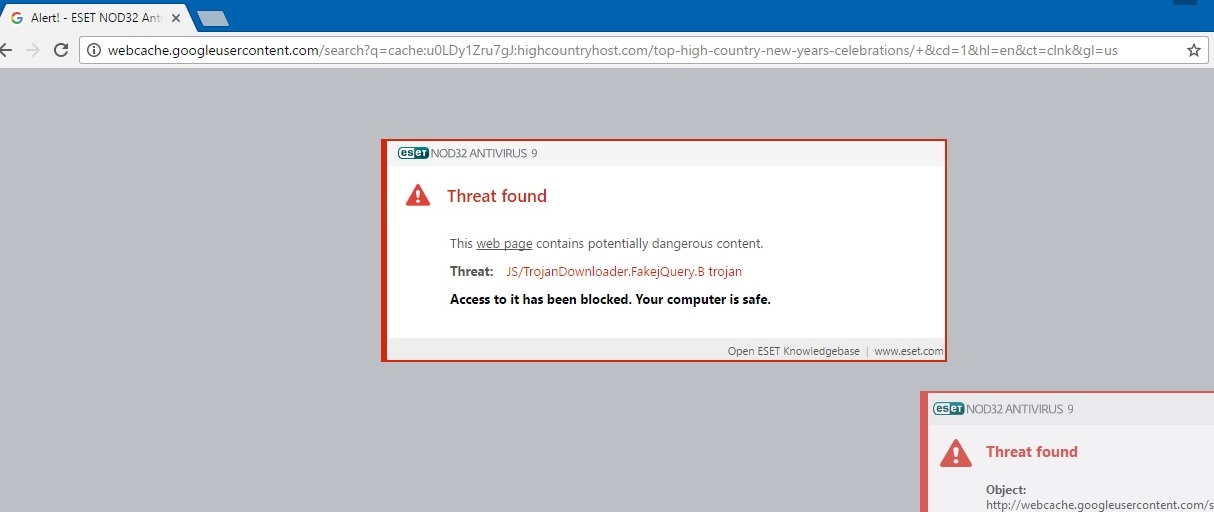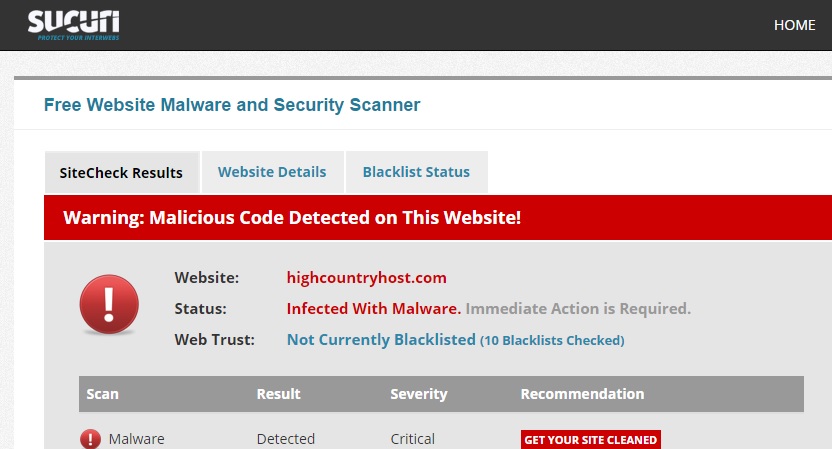 While looking up New Year’s Eve celebrations taking place in the mountains of North Carolina today I came across a hacked site. That is nothing out of the ordinary, however, the site’s payload is a trojan deliverable via a JavaScript. The way this works, is, you visit the site, the script gets executed via your browser, your PC gets infected.
While looking up New Year’s Eve celebrations taking place in the mountains of North Carolina today I came across a hacked site. That is nothing out of the ordinary, however, the site’s payload is a trojan deliverable via a JavaScript. The way this works, is, you visit the site, the script gets executed via your browser, your PC gets infected.
The page is highcountryhost.com/top-high-country-new-years-celebrations/.
Information about the high country is tough to find online so I backed up and tried to pull the page from Google’s Cache (related = view webpages cached in Google Search results). I was shocked to discover that Google had pulled the trojan and placed it in their cache.
I didn’t test it but I am fairly certain that if you browse Google’s cache using a vulnerable PC you will be infected!
I’m not quite sure how Google could fix this issue. As I reported earlier in the week, Google does crawl and index JS content, so it makes sense that it would cache it as well.
I double checked the page via Securi, and it is indeed compromised:
I was finally able to access an outdated copy of the page via the Wayback Machine.
Related:
- Google Search Console Hacked Site Manual Actions and SEO
- Fixing “Hacked Content Detected” Google Search Console Warnings and Their Affect on SEO
- Google “Pure Spam” Penalty Deindexes Sites March 6 2024 - March 12, 2024
- What Happened to ChicagoNow.com? - August 30, 2022
- The December 2021 Google Local Pack Algorithm Update - December 17, 2021






Leave a Reply